|
3/31/2017 Poetry by Anuja GhimireSisters from Skin Farm Beautiful sisters collapse for nights after the theft of their skin Beautiful sisters run from rooms bright enough for non-sisterly sins Beautiful sisters return home bare foot singed on their backs pink rectangles they haven’t yet seen Beautiful sisters farmed for the rich’s healing know their kind by the same scars Beautiful sisters, the edges of wounds are dark but fires are dimmed stars Love, Postpartum She returned to her mother’s lap after every swinging slap for one pat on the back that hardened and hardened until it broke her God, five-years-old, saves my life My daughter announced she was God as earth turned into tides She’d seen fear, mine, when I didn’t have enough hands to wrap around one child, and also hold another When I dug the ground with my heels to plant the three of us like Everest, my faith was shaking, and she knew. Then, she let the land swing like a temple bell. Dust rose to our foreheads like a prayer My God still stopped the quakes with her breath until I, too, had two right hands and two left 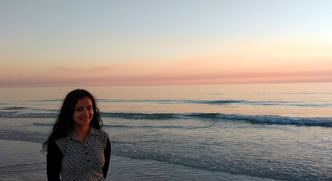 Bio: Anuja Ghimire was born and raised in Kathmandu, Nepal. A Pushcart-nominee in 2015, she's published in the U.S., Canada, and Nepal in over 40 journals, print and online. She lives in Dallas, TX with her husband and two little girls and writes poetry. In the day, she works as an editor/publisher in the e-learning industry. And you, my Dear Husband I had a dream you didn’t love me anymore I awoke and thought the world was over - And why should you? I’m such a bear... not like the silky plush ones you’re used to - Rather the kind that destroys beehives and chicken coops in the barren spring - looking to fill my shrunken stomach with your precious things. In the dream you were playing Zelda again - I was putting on lotion. It was the best way, I thought, to seduce you. I seem to have forgotten what you like - It's been so long since I’ve treated you to my body, so no wonder in the dream you chose the joystick to my swollen thighs to my pendulous breasts to my belly - a survey of stretch marks; to my lackadaisical performance In this dark time of my penitence - I've forgotten how to have fun. And you, my dear husband, have borne witness to it all.  Bio: Elisabeth is a mom of two young boys living in Vermont writing her heart out, riding her horses and hanging on for dear life. She loves it when she gets the feeling that a poem just plain worked. It is as exciting as galloping on a horse. She hopes that her words can help others feel better about themselves. She knows reading inspiring poetry has helped keep her swimming above the waves. 3/30/2017 Why I Marched by Rebecca PhelpsWhy I Marched: The first time was in Boston. We were 17, out dancing. Virgins. Screaming along to the ABBA song. My girlfriend was grabbed on the dance floor. She was apoplectic. We rushed her home. The second time in Spain. Italian tourists passing by down by the wharf in Barcelona, under the Columbus monument, our bellies full of pan dulce and Spanish coffee. There’s a strategy to it—they like girls who are traveling in groups. They do it quickly as you all pass, while you’re engaged in conversation. By the time you realize what’s happened, they’re already halfway down the road. Laughing at their success. And you stand there as the walls close in. Your breathing comes in short spurts. You were fine a minute ago. And now you’re not. Now you’re trapped. Now you can’t breathe. Now everyone sees you, you’ve been shoved into the ocean. They wanted you to feel stupid. And cheap. And easy to fool. They wanted you to know just how much they hate you. And they succeeded. They’re going to sleep like a baby tonight, knowing that by violating you, they’ve won. And you won’t sleep at all. So yes, it’s true. Nobody likes to be grabbed by the pussy. But that’s not why I marched. We went to Target and we went to Ralph’s and we bought the neon colored poster boards and we asked our husbands, “Which neon color says to you: ‘Don’t touch my pussy? Pink, right? It’s gotta be pink.’” And we got out our magic markers and we wrote “RESIST” in all capital letters. And we wrote, “My Body, My Choice,” and we wrote “Hands off,” knowing that anyone who would ever think of doing that with their hands was never going to read our signs anyway. But fuck it. That’s not why I marched. We got on the train. It was crowded. It was claustrophobic. We laughed it off, we smiled at strangers, we wondered if there would be enough air in the train cars and we panicked a bit when we realized there wasn’t. We got on the train with our signs, with our anger, with our friends, with our pink pussy hats and our Planned Parenthood T-shirts and we felt like maybe, just maybe, if there’s enough of us, if we’re loud enough this time, if we’re strong enough this time, if we march, if we walk, if we scream, they will hear us. There will be more of us than there are of them. We will not walk alone. Elizabeth Cady Stanton marched. Not because she was a woman, but because the world that presented itself to her was unacceptable. Martin Luther King marched, not because he was black, but because the world that presented itself to him was unacceptable. Mahatma Gandhi, Harvey Milk, Gloria Steinem. They marched not because of one issue that defined them, but because they refused to be defined by only one issue. When we got off the train, it was like plunging into a wall. A wall of pink and neon. A wall of pussy hats. We couldn’t walk, we couldn’t get through the crowds. We tried to find higher ground to gain some perspective, but there were too many people. Drums beat somewhere far off. A toddler sat on his mother’s shoulders, his eyes wide. There wasn’t enough air, even outside. My brother once locked me in a trunk. Shoved me in and sat on the top of it, laughing, not letting me out. Not enough air. Calling out for help. Nobody listening. We pushed through the crowd. We broke through the wall and made it to the top of the hill. Almost half a million people clogged the streets, swung from the signposts, perched on the rooftops. A woman dressed as Lady Liberty. Another as a suffragette. “The arc of liberty is long, but it bends toward justice.” I asked myself: What can I do for my country? What can I do for my mother, 30 years a US history teacher, heartbroken to watch her life’s work crumbling in the corrupt hands of a professional con artist? What can I do for my daughter, six years old, her first tooth wiggling right out of her mouth? What can I do for my friends? For my son? For myself? I can march. If nothing else, I can march. As I was leaving the house for the train station, pink hat pulled low, pink sign tucked under my arm, my husband, who was staying home to watch the kids said, “Baby, I wish I could walk with you today.” I thought of Boston. And I thought of Barcelona. I thought of every time a woman has walked home afterwards. Scared, mortified, furious. Alone. And I smiled at my husband, knowing he would walk with me that day if he could. And I said, “Yeah, I know, baby. I wish you could, too.” -------------------- Image - Mobilus 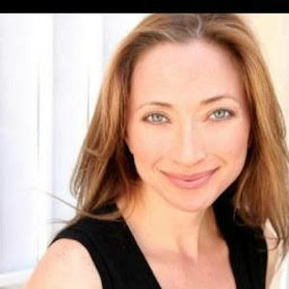 Bio: Rebecca Phelps is an actress, screenwriter and novelist. She is the co-creator of the popular writing blog Novel2Screen.net and her adaptation of the novel The Doll in the Garden has been optioned for film. She lives in Los Angeles with her husband and two kids. Montreal-based singer/songwriter Roxanne Potvin says that one of the most valuable lessons she has learned about creativity (and life) is: what scares you is usually what means the most to you. And if what means the most is the music, Roxanne has faced that fear head on, resulting in an admirable and enduring body of work. Her latest album, For Dreaming, recorded after a five year break from music, is the well crafted result of all the years Potvin has spent cultivating and composing simplicity; only keeping what is necessary, the bare bones of emotion. As Bob Mersereau once wrote of Potvin, "The beauty, well, that’s the sound of somebody who has learned how to make the sounds in her heart come alive.” "I think the most significant thing being a songwriter has taught me" Roxanne says, "is how much of yourself is shown to you in the process." Here we get a small glimpse of what those things are. AHC: What has this journey in music, so far, been like for you, the highs and the lows, and what life lessons do you feel you've picked up along the way? Roxanne: That answer could easily fill a couple of pages but I'll try to be concise! I think the most significant thing being a songwriter has taught me is how much of yourself is shown to you in the process. And the more you know about yourself the more you're able to relate to human beings in general and you have so much more to write with and about from that. As you become more self-aware you learn how to listen to and understand more deeply, others and yourself. To try to create something that's your unique contribution and reach people with it, you're faced with so many of your own insecurities, self-doubts and hang-ups, you have to learn to work with all that stuff to get better, I think. Also the more you expose yourself fully, the more people are able to relate to you. But also it can't just be an excuse for your own catharsis, the listener has to feel included, that's where craft and aesthetics come in. You get used to rejection too, you can't avoid it, to the point where it doesn't discourage you from the bigger goal. You learn how to be open to criticism and see the lessons in it etc etc. I could go on! It's a commitment you make to keep going because the ups and downs never stop, but the useful lessons are constant. Living life feeds you as a writer and vice-versa. It takes a lot of soul-searching. And shear stubbornness, frankly, but the rewards are literally life-changing! AHC: What first drew you to music and what was your early musical environment like growing up? Were there pivotal songs for you then that just floored you the moment you heard them? Roxanne: Music was always a friend and a companion to me and to my whole family I think. Both sides of the family enjoy music and/or play on some level. So much that I never really seriously considered it as a career until my late teens, because it had always sort of been there. I remember being little and wanting to have a nice voice so I would sing along to records and work on my voice, but it was instinctual, there wasn't an agenda attached to it or a career goal. It was just because I loved music and wanted to be able to do it. Same with writing. I was writing poems and stories for as long as I can remember. Getting into the Beatles was a big turning point for me at 13 and got a guitar. That was the start of it all coming together, wanting to write songs and sing and play them. It brought together all the puzzle pieces. And then I got into the blues at 15 and that's when I thought this could actually work, because I started going to open jams and getting attention and positive feedback. AHC: Do you remember the first song that you ever wrote or played? Or that first moment when you picked up a pen and realized that you could create whole worlds just by putting it to paper? Roxanne: I remember picking up my dad's guitar when I was 7 or 8 and teaching myself the bass line to Queen's Under Pressure which I only knew at the time as the Vanilla Ice song Ice Ice Baby so that would be the first song I ever played on guitar! haha :) Took piano lessons around that time too, learning classical stuff. I started attempting to write songs when I was 13-14 and in love with the Beatles, learning to play guitar, but couldn't figure out how to finish the song so I'd only have parts, it took til I was about 18-19 to write a whole finished song and really, my first songs were carbon-copies of blues songs I loved at the time. Over time I started crafting songs I felt were more my own, it took many more years though. I only started being somewhat satisfied with my writing and finding my own way when I was about 28... AHC: Which musicians have you learned the most from? Or writers, artists, filmmakers etc? Roxanne: The Beatles are still my go-to reference for songwriting and even sounds and arrangements. I love everything about those albums... John Lennon and Beck for lyrics and Beck for sounds too, always loved his mixing of old with new. More recent influences include Kurt Vile, Bahamas, Tobias Jesso Jr., Andy Shauf…. Lot's of amazing songwriters coming out of Canada these days in the case of the last 3! I was always influenced by the roots of pop music, the blues was a huge influence early on, it's the backbone for everything else as far as I'm concerned. You can learn so much about songwriting and storytelling and the effectiveness of simplicity listening to those early blues records. Simplicity meaning only keeping what is necessary to get the emotion across. I'm a big fan of simplicity! AHC: What do you think makes for a good song, as you're writing and composing, is there a sudden moment when you know you've found the right mix, that perfect angle of light, so to speak? Roxanne: There are two steps usually. The first is when the tension releases as I'm writing something that I feel is "right", that I don't feel the need to tinker with it anymore. Second, if I can play it for someone without cringing or being self-consicous at any point, I know I can probably live with it in it's current form. That's my definition of a good song from my own perspective. There's a ton of objective and subjective criteria for a good songs beyond that... AHC: Do you consider music to be a type of healing art, the perfect vehicle through which to translate a feeling, a state of rupture/rapture, hope lost and regained? Does the writing and creating of the song save you in the kinds of ways that it saves us, the listener? Roxanne: Absolutely. And that's probably the driving power behind my desire to make music, it's that I hope I can make people feel with my music the way I feel listening to music that I love. AHC: What are your fondest musical memories? In your house? In your neighborhood or town? On-tour, on-the-road? Roxanne: There are too many to name just a few here. Music, listening to and playing it, has been the thing that has brought me the most joy in day to day life, emotional support in hard times, it makes me excited to get out of bed in the morning, it's been my companion now for most of my life. It's vital to me. AHC: When you set out to write a song, how much does 'where the world is' in its current moment, culturally, politically, otherwise, influence the kinds of stories you set out to tell? Roxanne: I wish I was better at writing socially-engaged songs because I believe that they can bring people together and inspire social movements through awareness and empathy. Right now though, it usually feels really trite and cliche when I try… I haven't figured it out yet but it's something that I want to do more of. AHC: Do you have any words of advice for other musicians and singer-songwriters out there who are just starting out and trying to find their voice and their way in this world? What are the kinds of things that you tell yourself when you begin to have doubts or are struggling with the creative process? Roxanne: My advice first and foremost would be: trust your gut. Trust yourself and what you want and what you're aiming for and you might not know exactly what that is right at the beginning but you'll always have clues so pay attention to them. In my experience it takes time... That's the only thing that will consistently lead you to where you need to be in order to learn and grow and become the artist you aspire to become, even when you make mistakes. That doesn't mean don't take advice or learn from others who might be more experienced than you, it is really important to surround yourself with mentors and people who inspire you, but even still, if something doesn't feel right or rubs you the wrong way, trust that and know that that feeling is there for a reason. Self-doubts will always come and go, you just learn to ride that wave. One of the most valuable lessons I've learned about creativity (and life) is: what scares you is usually what means the most to you, so absolutely keep going when you're scared! AHC: Do you have any new projects you'd like to mention? Roxanne: I have a few ideas for different projects floating around in my brain, nothing I can really talk about yet because they're just ideas for now, but when I get home from the short tour I'm on right now, I plan on getting some writing done to record something new in early fall. For more visit roxannepotvin.com/ 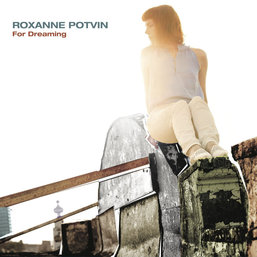
To stream and purchase Roxanne's latest release, For Dreaming, visit roxannepotvin.bandcamp.com/
3/29/2017 Eyes by Marvin DorseyEyes The truth of a moment looking into the mirror when the reflection isn't who you thought it should be It's An ocean of scattered memories puddle in the palm of my hand as I stand at the shore completely naked sky bleeding into the horizon Sand disappearing under the waves like fading footprints of a lost people who had spent too much time hiding behind someone else's shadow wailing like banshees as their world dies 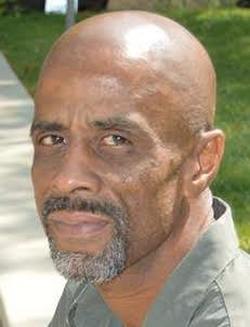 Bio: At the end of a workday Marvin Dorsey travels 60 minutes by freeway, exiting on a long unpaved desert road to his ranch home in Lancaster. There he is greeted by the wind, lone tumbleweeds rambling across the sandy vista, and a variety of farmyard animals. The dichotomies of city and desert, noise and quietude, and the confines of a cage vs.the expansive freedom of the night’s universe of stars, inform the heart of Marvin’s poetry – where a deep interior life shares the page with the wide exterior landscape. 3/28/2017 Eat, Prey, Love by Kate JonesMaxime Delrue Eat, Prey, Love Kitty is bringing her prey back every night now. I look down at the mangled rodent by my foot, nudging it with the tip of my moccasin. It’s definitely dead. Its innards trail along the doormat like the strings of spaghetti clogging the plug hole. Kitty licks herself censoriously on the kitchen windowsill, bored now that her prey is dead. I pull the dustpan and brush from the cupboard under the sink. It used to bother me, all these tiny deaths. Now I sweep them away like everything else. When we first moved into the flat, I’d thought Rob would deal with the cat’s gifts. But the first time we discovered a tiny dead vole on the living room rug, he’d let out such a scream, I’d had to stifle a bubble of laughter from escaping. I creep down the stairwell and deposit the mouse into the dustbin, wedging my foot into the corner of the door to stop it locking. That happened once, meaning I’d had to be let back in by Creepy Roger from the floor above. Roger had stared at me a second too long in my towelling robe, spittle gathering at the corner of his lips. He resembled the stuffed carp that hung in a frame above the bar at the Crown. Since Rob moved out, I’d felt him pausing outside the door on his way down stairs. Could hear him breathing on the other side, his heavy boots clumping to a stop. Peeking through the peep-hole, I saw his dandruff-flecked hair sticking out from his head. I make it back to the flat unscathed, give Kitty a glare which she ignores. I’ve left the bread in the toaster and a thin stream of smoke rises from it. I unplug it before it sets off the smoke alarm. I don’t need Roger rushing down and offering me a fireman’s lift. I pour coffee from the jug and carry my mug across to the corner desk by the tiny window. I have to get my thesis finished this week; my professor’s breathing down my neck. Marie says he allows extra time for female students who give him a blow job, under his desk, after hours. I said I’d rather fail, she shrugged. Marie shrugs a lot. She’s a daughter of divorce. I determine not to check on social media, to just crack on with the work. My ‘phone pings. Facebook status update. It’s him. Rob. He has a new ‘photo, apparently. I know clicking on it is a bad idea. I click on it. It’s a picture of him and his new squeeze on a beach somewhere. I enlarge it on the screen. I trail my eyes down her emerald green bikini top, the dip between her breasts. I glance down at my own inside my robe; press them together with my hands, look back at the screen to see who has the best. Let go and they fall away from one another, defeated. Kitty comes to perch beside me on the desk. I reach up and stroke her, without taking my eyes from the screen. Lose my hand in her deep carpet of fur. She purrs. If only it was this easy to please everyone. Rob looks out at me from the screen, suntanned, specks of sand littering his shoulders and torso. He‘s holding his girlfriend across his body. She’s laughing, her long hair streaking her face. I reach up and rub a hand through my short crop. I can see her fillings. I sigh and close down the ‘photo. Open the document with my thesis in. Begin adding words to it. * I’m making pasta for a late dinner when Kitty jumps through the flap and drops a parcel at my feet. It’s a squirrel, I can see from the bush hanging off what’s left of its body. It’s a small one, but still a squirrel. She’s getting more adventurous. I look at my pasta, consider eating first. Change my mind and grab the dustpan out of the cupboard and sweep it up. On my way back from the dustbin, I collide with Roger going out. I see him scan me. I’m still wearing my robe from this morning. Just taking a shower, I say, by way of unnecessary explanation. I walk back up the three steps to my flat and clang the door behind me. I sit on the sofa, channel surfing, eating pasta. Marie texts, do I want to go out? I ignore it. I fall asleep where I am, the TV talking to itself through the night. * This morning: a rat. Fat, almost unblemished. A clean kill. Kitty prowls around it this time, proud, looking for praise. Although I know I should be grossed out, something about the way she exhibits her kill thrills me. Her slender white body twirls around it. She’s not going to want me to take it, I can tell. I decide to make coffee first. I’ll let her have her pride a while longer. I take my coffee into the bathroom and turn on the shower. It’s three days since I showered, I realise. I stand under the water, feel the pounding of it on the top of my head. Hear the doorbell. Swearing under my breath, I wrap myself in a towel that’s too small and my hips push out the sides. I look through the peep-hole and see Marie standing on the doorstep, Crispy Donut bag in hand. I pull it open and she takes a look at me, dripping there on the laminated flooring. Breakfast, she says, in her deadbeat voice, full of the night before. She screams as she almost treads on the rat, and Kitty jumps onto the windowsill, offended. Oh, I was going to move that after my shower, I say. Jesus fucking Christ, Lara. It’s a fucking rat, she says, like I’m unaware. Yeah, I know. It’s ok, it’s dead. She looks back at me like I just farted at her wedding. Let me just put some clothes on, and I’ll take it out, I say, going into the bedroom and throwing my robe back on. When I come back, she’s made two fresh coffees and is sat, cross-legged on the couch eating a sugary donut. She licks jam from her fingers. I sit across from her and pick an iced donut from the bag. So what you do last night? She says, between mouthfuls. I shrug. I texted you to come out. I know, I was busy, thesis…I trail off, waving my hands around my head. You need to get out more, Lara, she says, plucking a second donut from the bag. Donuts are Marie’s staples. Coffee, donuts, cigarettes, sex. She can’t live without any of them. Rob’s got a girlfriend, I say. She stops eating for a second. Fuck, Lara. You knew he had a girlfriend, that’s why he left. Yeah, but I saw a picture of her. It looks like they went on holiday. Looks somewhere hot, I say, looking toward the small window that’s letting in a hint of grey. You gotta move on, babe, she says. Get yourself laid. Get high. Do fucking something rather than sitting here in that minging robe every goddamn day. I shove the half-eaten donut back into the bag and drink my coffee. * Tonight: a bird. This one’s still moving when she brings it in, one wing broken, the other flapping too fast. It’s on the floor, and it’s making itself spin slowly round as the one wing propels it. Kitty watches it, her head on one side, fascinated. Like she had nothing to do with it whatsoever. I don’t like it when they’re still alive. It makes me feel responsible. I know you’re supposed to whack it, finish it off, put it out of its misery. It obviously can’t survive, can’t fly with one wing. I deliberate what to do. I promised to meet Marie down the Crown in five minutes, and I think maybe I’ll leave it until I get back. It will definitely be dead by then, so I won’t have to worry about it. The bird’s movements are getting slower. Kitty loses interest and begins cleaning herself, licking her paw and rubbing it around her whiskers. There’s a trace of blood on one of them. * Marie is already there when I arrive. She hugs me briefly. She smells of her usual perfume and old smoke. I like the smell, it’s familiar. I got you a beer, she says, for starters. She winks, which makes me laugh. I stop laughing when I smell aftershave behind me. I turn round to see Roger’s face. He’s cut himself shaving and has a bright red mark under his nose. Hello, Lara, he says quietly. Nice to see you out and about, and dressed. He puts an emphasis on the ‘dressed’ making me want to punch him. Marie starts laughing, inanely, making me want to punch her even more. Can I get you both a drink? He says. I shake my head but Marie says Why not? Mine’s a vodka orange, she smiles at him, her lopsided mouth smirking. She sees me glaring, says, and Lara will have the same. He smiles and walks off toward the bar. What the fuck? I say, but she just laughs. Relax, Lara, you could do a lot worse. Creepy Roger? I say, do I look that desperate? Frankly, yes, she says, eyeing me up and down. I look down at myself. I’ve got dressed at least. I’ve put on some clean-ish leggings, a long t-shirt. Look Lara, you need someone to break the fast, honey, she says. I don’t answer as Roger comes back with the drinks. He sits down to join us and starts eating a packet of crisps noisily. I sip at the vodka and let it warm me, trying not to make eye contact. * It’s after midnight when I enter the flat. Roger is holding me up and I’m rambling on about something on his shoulder. I think I might have been telling him about the picture of Rob, because he’s saying something about moving on, glad I got rid of the guy. I don’t invite him in but he follows me anyway. Says he’ll put some coffee on. He flicks the light switch. I see his eyes staring at the floor. The bird, now very dead, lies still, its one remaining wing flayed outwards. Its black eye still stares. Roger looks at me. I was going to get rid of it when I came home. It was still flapping when I left…I…couldn’t bring myself to kill it. He nods, grabs some kitchen towel, bends down carefully and folds it into it like wrapping up a sandwich. He tucks the ends of the towel in and holds it in the palm of his hand. It looks like an offering. I look up at him. He isn’t grossed out. She brings them in all the time, that’s why I’m always going out to the bin, in the mornings, I say. He just nods. I know they should gross me out, but there’s something about them. I dunno, it’s like she’s bringing me a gift every day, you know? Roger doesn’t say anything, but holds out his other hand to me. I look at it hanging there like an imposter. But I take it anyway. Follow me, he says. We leave my flat and walk up the stone stairs to the next landing. We stop outside his door and he lets go of my hand and fumbles in his pocket for his key. He pushes the door open with his shoulder and lets me inside first. The flat is warm and cosy, there are lamps on. Roger lets the door close behind him with a clunk and walks ahead of me down the hallway still holding the dead bird mummified in the kitchen towel. He opens a door into a bedroom, inclines his head for me to come in. I walk into the room and look around me. There’s a long table in the centre with various tools laid out neatly in a row, gleaming silver. An apron hangs from the back of the door. It has tiny red splashes on it. I walk further into the room and see small glass boxes lining the back wall. As I approach, I see creatures inside the boxes, mounted onto tiny plinths. A vole, a mouse, a rat. On the table, a squirrel lies partially covered with an old tea towel. I turn to look at Roger, who is still standing behind me, his hand holding the bird outwards, waiting for some kind of sign. The curtain is open letting in a slice of moon like a Cheshire cat smile. 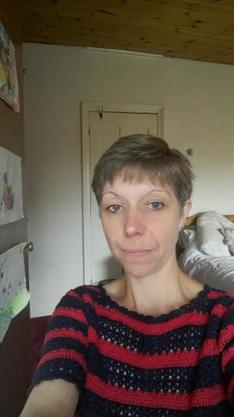 Bio: Kate Jones is a freelance writer based in the UK with flash and short fiction appearing in various online literary magazines, including The Nottingham Review, SickLit, Spelk and The Open Pen, as well as winning the Flash 500 quarterly competition. She also publishes creative non-fiction and essays, including regularly writing for The Short Story. "Music," Duncan says, is "a journey of continual discovery. There’s no linearity to what I do. And I love it for that reason." Last month saw the release of Doll's debut EP, Hurricane, written in an East Village apartment in NYC, a catalyst for the songs that came through on this record, "it's where I lived when I was young with my family. I’d become very stuck in my surroundings at home in the UK and I think creating this EP saved me in a way," Duncan says, of finding her muses, and bringing them out, across the water. We caught up with Doll to talk about how she got started on this path, her earliest and fondest musical memories and her new EP, Hurricane. AHC: What has this journey in music, so far, been like for you, the highs and the lows, and what life lessons do you feel you've picked up along the way? Doll: It’s a journey of continual discovery for me. There’s no linearity to what I do. And I love it for that reason. Music was never something I thought I would pursue when I was at school. It never felt like a realistic option, so I focused on other subjects. But then I dropped out of University and ended up making it my life ambition! So life never quite rolls out the way we think it might. If I’ve learned anything from the journey so far, it’s that we should never give up when we think we’ve hit bottom, because it never lasts. There will always be a high that comes later and beats it ten times over. AHC: What first drew you to music and what was your early musical environment like growing up? Were there pivotal songs for you then that just floored you the moment you heard them? Doll: Music was never really a big thing in my family growing up. I was a bit of a loner in that sense. My Dad is a fan of classical music and would listen in the car. My Mum doesn’t really listen to music. However she is a big fan of musicals. From a really young age she had me watching movies from the 30s and 40s with Judy Garland, Fred Astiare and Shirley Temple. I started singing their songs and mimicking them, dancing around the house. You couldn’t stop me singing ‘Easter Parade’ or ‘Have Yourself A Merry Little Christmas’. Also my grandfather was a huge Frank Sinatra fan. He had it playing when we would go to visit. AHC: Do you remember the first song that you ever wrote or played? Or that first moment when you picked up a pen and realized that you could create whole worlds just by putting it to paper? Doll: The first song I wrote on piano, I called Boogie Woogie. I was 9 years old, and the lyrics went “boogie woogie woogie woogie till you drop, all the whole night through. Boogie woogie woogie woogie till you drop, may I dance with you?” It’s still probably one of the greatest things I’ve written. AHC: Which musicians have you learned the most from? Or writers, artists, filmmakers, teachers/mentors etc? Doll: I think I’m constantly learning from other musicians. There isn’t one person or people in particular. I learn a lot from the musicians that play with me on stage. Also the musicians I meet at gigs or travelling. And of course I’ve absorbed a lot from the artists whose music has most shaped my own – Fiona Apple, Alicia Keys, John Mayer. My grandmother was the first person to ever tell me “you can do anything you set your mind to”. Even after passing she is one of my greatest mentors. She also believed a lot in my music. And at school I think my art teachers were inspiring to me. I wasn’t the most talented, nor the most creative, but having the art department was a very nurturing escape. I was tapping into something not fully realised yet. AHC: What do you think makes for a good song, as you're writing and composing, is there a sudden moment when you know you've found the right mix, that perfect angle of light, so to speak? Doll: I find usually the greatest songs come in a very unplanned way. And when they do, I get a feeling of euphoria spread through my body. You just know you’ve hit it right on. But to get there, I really have to let go. When my brain gets too busy I can’t detangle or filter my thoughts. Overthinking is the biggest obstacle for any emotion trying to get out. I also find that big life shifts are great for songwriting. I love travelling too because I immediately gain new perspective on things. I do a lot of walking when I travel and it’s a great time to reflect but also to really open my eyes to what’s going on around me. It reveals a lot that I maybe hadn’t noticed before. AHC: Do you consider music to be a type of healing art, the perfect vehicle through which to translate a feeling, a state of rupture/rapture, hope lost and regained? Does the writing and creating of the song save you in the kinds of ways that it saves us, the listener? Doll: It is definitely healing. No doubt about it. I remember an interview I watched with Fiona Apple where she said she could only write music when there was something she desperately needed to say. I think I’m the same in some ways. I can’t write all the time, but when I do I can be very prolific and I can physically feel a lightness in myself, a huge pressure lifted off. But there are also those moments where nothing is coming out as I mentioned in the previous question, and that can be painfully frustrating. ‘Grenade’ on my EP, Hurricane, is about just that. AHC: What are your fondest musical memories? In your house? In your neighborhood or town? On-tour, on-the-road? Doll: Some of my favourite memories are from when I was very small. I remember family trips in the car when I was only 4 or 5, and I would be singing the whole way, songs from musicals or things made up in my head. My brother could not stop complaining to my parents that I never stop singing. I really couldn’t help myself. Another memory is dancing around on this big rug in my grandmother’s bedroom. There was some old music show that she would sometimes have playing on the TV where they had singers perform. I danced on this rug and the music played, and it was just such a happy time. I think my love for music started very very young. AHC: Do you have any words of advice for other musicians and singer-songwriters out there who are just starting out and trying to find their voice and their way in this world? What are the kinds of things that you tell yourself when you begin to have doubts or are struggling with the creative process? Doll: I’m not sure I’m in a position to give any advice to anyone, but perseverance I think applies to us all. Change happens when we least expect it. When I begin to have doubts, I’ll tell myself to try relax a little. It’s not an easy thing to do. Fear and doubt can be extremely paralysing. I’ll attempt to shift perspective and loosen up, remember what really matters, and stop trying so hard to get it right all the time. The actor Bill Murry said something I love, that you can do the very best you can when you’re very relaxed. I think that’s true to life. AHC: Could you talk some about your debut EP Hurricane? How long did it take you to write and conceive this album and to bring it out into the world? 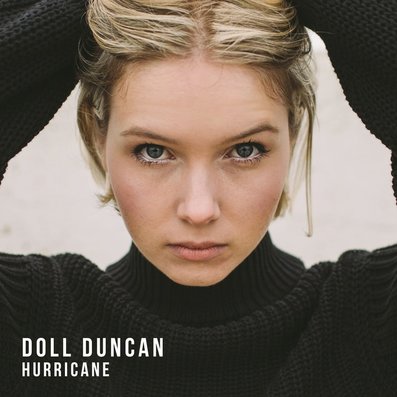
Doll: I wrote it in New York where I lived when I was young with my family. I’d become very stuck in my surroundings at home in the UK and I think creating this EP saved me in a way. Going back to New York was the best thing I could have done. It took maybe about a year to create from start to finish, but it’s a collection of thoughts and reflections that span a much longer period. Making it was a very big learning experience and going back to a previous question, also a very healing one!
3/27/2017 Two poems by Don Kingfisher CampbellUditha Wickramanayaka Unlike Stars I can only imagine The past in my head I visualize you at night Bounding happily the marble Sidewalk in your red Music Center work dress uniform And you near the Echo Park lily pads wearing A delectably low-cut tee With curve hugging jeans A vendor taking a $2 summer Polaroid of us on the bridge And you in your frilly Filled white blouse Atop black leather skirt Perfectly made-up to co-judge A morning elementary school Halloween costume contest And you every day donning A monochromatic medical Assistant top with matching Pants looking like a cheerful Teenager as I drop you off Pick you up at the clinic You all seem as real to me As twinkles in the sky Brain synapses of coupled Constellations that drifted Apart in the gradual entropies Of light and dark years My Seventies I look at the orderly collage of record Album sleeves on my home office wall I realize I’ve subconsciously posted the many Facets of my own personality confirmed by music: Paul McCartney and his Wings in Africa because This white boy also effortlessly dug black rhythms George Harrison had Krishna on a four horse chariot, I too felt sadness at the follies of the material world Elton John peered out of his pink tinted glasses, and I Introspectively gaze at society thru manufactured lenses ELO, seven scraggily-haired men in t-shirts and jeans, you Could have put me in the picture as number eight And ELO jolted classical music with rock, like everyone Else I eventually discovered what came before matters Jon Anderson, my favorite mystic, with one foot in ancient Times while drawing inspiration from childhood noir films The Runaways, teenage girls in black with long straight Hair gave this teen a whore moan shot in the pants So did Linda Ronstadt’s big dark ojos and sexy bare Shoulder imprint a vision of a future wife in my genes I was another Bob Welch, cupping my hands to form Googly finger specs for the girl with Ebony Eyes Tried to be tough like Bob Seger sporting Fu Manchu Mustache and leather jacket under the full moon Faded a la Steely Dan slipping shades and splitting In two over the dichotomies of being alive Carly Simon, tall and slim in her loose blouse And black slacks made me want to become James Taylor, the perfect husband, singing His love for her, embodying all man kind John Lennon was my real role model, pissed And creatively loving his partner as an other half Shortly after that though, the Ramones delivered A young man’s life in the cities angsty laughs Su Tissue of Suburban Lawns became the arty Hipster woman I longed to meet in college But exotic Hiroshima’s mellow jazz taught me To chill out around the ladies and smile And jazzman Lenny White and Twennynine Had me grooving again to Peanut Butter soul So, guess I’m the above, with a helping of Genesis, Using elemental colors to present pure feeling 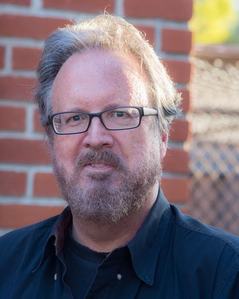 Bio: Don Kingfisher Campbell, MFA in Creative Writing from Antioch University, multi-award-winning poet listed on the Poets and Writers website, has been a coach and judge for Poetry Out Loud, a performing poet/teacher for Red Hen Press Youth Writing Workshops, Los Angeles Area Coordinator and Board Member of California Poets In The Schools, poetry editor of the Angel City Review, publisher of Spectrum and the San Gabriel Valley Poetry Quarterly, leader of the Emerging Urban Poets writing and Deep Critique workshops, organizer of the San Gabriel Valley Poetry Festival, and host of the Saturday Afternoon Poetry reading series in Pasadena, California. For publication credits, please go to: http://dkc1031.blogspot.com 3/26/2017 The Dropped Flask by Nick BlackThe Dropped Flask The Twins Who Probably Weren’t Twins were rifling through the clothes rails when Mrs Singh bellowed “It’s a different generation, isn’t it?” into my left ear. I tore my gaze away from the girls – I couldn’t decide which of the two was the prettier, or if they were pretty at all or simply unusual of feature, or whether their age gap would be measured in minutes or years. Margaret, the manager of the shop, told me on another occasion that I was obsessed, knowing about my previous employment issues and concluding, I suppose, that I was incapable of temperate emotions, to which I had just grunted. “How old do you think I am?” I asked Mrs Singh. She scrutinised me, forensically, even her bindi dot narrowing to see me better. “Middle aged?” “I’m twenty six,” I lied, and she shrugged. The Twins Who Probably Weren’t Twins, as ever, left after a few minutes, empty-handed, door jingling behind them. Perhaps the charity shop next door would get their money. There were plenty to choose from along this high street, though we were the largest. The premises used to be a Blockbusters, and a large branch at that. Our square footage alone drew in browsers. When another of our regulars, a stocky little Iranian man with silver bouffant, Mace-effect aftershave and sweet little scoop-necked sailor t-shirt walked in, wondering if we had anything nice for his wife this week, Mrs Singh patted the back of my hand and stepped aside to let me work. Not everyone I knew supported my change of occupation. My sister Chloe was so embarrassed by the prospect of people who knew our family seeing me, she talked about moving herself and her daughter Dina to South London. I suggested moving all the people who knew our family there instead, but she wasn’t amused. Or maybe I could leave the area, I suggested, to an unblinking frieze of a face. I went to tuck my niece in before leaving. Dina didn’t want to move, and we decided to partition London right away. Blow up the bridges. Stuff the Tube tunnels. Blockade the M25. To add to her destructive fervour, I told her she’d probably be the only Jewish girl in the whole south of the city if she and her Mum moved there. I didn’t know what I was talking about, and my family are third-, fourth-generation secular assimilated bacon-eaters anyway. The line had seemed funnier in my head than it sounded coming out of my mouth and frightening a seven year old. I stroked a curl off Dina’s forehead, apologetically, only to be scolded for messing her hair. “Does water go down plugs the wrong way in South London, like in Australia?” she asked. “Only on Wednesdays,” I replied from the doorway. She declared me mad, and rolled herself over to face the wall. At weekends, we had a few younger people help out in the shop. When one of them heard I had worked in the City, he asked if I’d help with his Maths coursework. I told him he couldn’t afford my hourly rate. The kid looked at me, weighing up my height, bulk, arm reach, the medicated slur of my eye movements, before calling me a name that hurt my feelings. I liked an older guy called Eric more. We’d sit out back, sorting through new donations, road-testing any CDs we’d been given. Since he considered anything recorded after Benny Goodman’s heyday to be voluntary tinnitus, a great many of them hit the bin (via the wall) before ever reaching the shop floor. My happiest memory with him was the day he opened a battered suitcase and found that someone had donated a collection of gentleman’s mags dating back to the early ‘80s. He spent the next bright-eyed hour leafing through them, pensively chewing the ends of his moustache while I continued with the rest of the bags. When I turned a thermos flask over in my hands – it tinkled like a rain stick – he asked me to keep the noise down. Eric and I did the home collections. He’d barely say a word to the donors, keeping his eyes to the ground until we were outside. Then, driving back, he’d not shut up, giving his expert appraisal of the entire property’s inventory. He seemed to notice things with extra sensory perception. I heard evaluations of items in rooms we’d not even stepped into, and wondered, privately, if Eric had untapped professional skills or hobbies of his own, of a nocturnal variety. Margaret suggested I not be too chatty when we went to people’s homes, which was advice I should have taken. One day, Eric and I had gone to an august property facing the Hampstead Heath Extension, been buzzed in at the gate, and met at the door by a maid. I had colleagues in my previous line of work who’d buy Mayfair flats just to store their off-season footwear in, so I wasn’t intimidated by any of this until the maid led us up a dimly lit flight of stairs to a gallery, where we were introduced to the lady of the house, languishing in caramel sweat pants and zip-up the same colour as her lipstick. The glance that swept across us was like a stomach pump, for the duration that it lasted evacuating any notion of self-worth we may have foolishly scraped together up to that point in our lives. Thankfully, she didn’t look directly at us again, giving us the rest of those lives to recover. With a pained expression on her face, she showed us wardrobe after wardrobe of her husband’s clothes that we were to take. Then she took us down another flight of stairs I’d not seen when we arrived, to a games room, where she showed us his golf clubs, several tennis racquets, a table tennis table. She asked if the charity shop would accept cars. Back up some steps, in another room, stacked on the floor against the wall, framed photographs, some artwork. Take it all, she said. It took us awhile to load up, and when we finished, I made the mistake of mumbling “I’m sorry for your loss.” “Oh, he’s not dead,” she said. “He’s in Belize with his PA.” By the time we’d unpacked everything back into the house, it was raining heavily, and we drove back empty-handed and puddling. I was never in a hurry to leave the shop, often lingering with a mug of tea after my shifts had ended, not necessarily to everyone’s glee. I was back with my parents at this point, which was unexpected and awkward for all of us. I’d sit on my bed in my childhood room for hours at a time, listening to birdsong through the open window, the radio or stereo on murmuringly low. I sent emails to people I knew that disappeared into the ether. I watched DVDs that I borrowed from the shop on my laptop, and tried to avoid going downstairs, except to use the kitchen. The only member of my family who I truly felt akin to was Dina. For the life of me, I couldn’t comprehend how her dad could choose to live apart from her, whatever he felt for my sister. I’d have gladly adopted her as my own, home schooled her, set up a two-person travelling family circus alongside her to tramp the leafy country lanes of this island... Chloe, in her softer moments, would interrupt such talk and try to reassure me that one day I’d hopefully have kids of my own. I didn’t like to talk about my domestic circumstances, but Mrs Singh somehow knew of them. She was living with her married son and daughter-in-law and grandchildren, and told me, when we were locking up one evening, that she felt we were in the same boat. She introduced the subject confusingly, telling me that her son lived at home again, too, but once we’d managed to understand each other, her mouth unpeeled a rare, if tooth-shy, smile of such warmth that I was temporarily convinced she was the incarnation of some Indian goddess moving, rather slowly, amongst us. Of course I ran too far with this newfound bond. Compared to my previous place of employment, we spent a lot of time at the shop making hot drinks and talking. When it came up in conversation one morning that Margaret’s son was, at that hour, taking his driving test, and Mrs Singh revealed that she had never herself learned to drive, I offered to teach her in my car. She didn’t look especially keen, and Margaret looked outright anxious, but my enthusiasm carried the day, and when I came back from my lunch hour bearing two new magnetic L plates, there was nothing more to do than settle on a time for our first lesson. We walked to where I’d parked, me touching together then parting the L-plates to enjoy the magnetic cling. Mrs Singh looked at my red 1998 Mercedes SL-class in the grey late afternoon light and asked if I had anything else. I showed her the basic controls, the pedals, the indicators and so on, and let her try them out for half an hour before suggesting we attempt a simple circle around the block. I thought I was doing very well, and pondered whether this might be a possible new career option for me. I explained that the car was an automatic so there was no risk of stalling, and got her to start the engine. We pulled away from the kerb. Rain was spitting at the windscreen, not enough to lubricate the rubber wiper blades but too heavy to switch them off, so we had to listen to them rubbing, rubbing, rubbing across the glass. I said, “You’re doing great. You’re a natural.” “It is not so difficult,” she replied, and turned to me for a response before nearly mounting a car-carrier stopped a few feet ahead of us. I was fit to crawl out, through the air vents, if necessary, by the time we found a space large enough to stop at. This period was never going to last forever, and I knew it would be something I did that would cause it to end, again. Mrs Singh and I both kept our distance after the driving lesson. Eric wasn’t always in, and maybe I started attending to my own thoughts too much. Sometimes I couldn’t notice them ballooning out of sensible proportion. I became fixated with the idea of making a sale to the Twins Who Probably Weren’t Twins. I thought it would be fun, a challenge. I knew how they dressed - stretch skirts, hooped leggings, thin cardigans – and started popping into the other charity shops to look for items I thought might appeal. Obviously, this wouldn’t work with clothes they’d already passed over, I realised, and so I started shopping further afield. Then I began ordering new pieces online, leaving the tags on for added attraction. I’d bring them in in bin bags, so they’d look like any other donations, but on a quiet Friday morning, Margaret invited me to join her in the back. A friend of hers from the Oxfam shop in Highgate had recognised me, and found my general demeanour when in there slightly alarming. I was buying something for my sister, I said, but Margaret remained firm: she’d noticed I was becoming more exuberant of late, a little too insistent with people – she brought up the ‘enforced’, as she put it, driving lesson - and not unkindly suggested it was time that I move on. So that was the end of my era in the charity shop. I did once see the younger, possibly less pretty, Twin on the street not long after, though, and could have sworn she was wearing one of my V-necks. 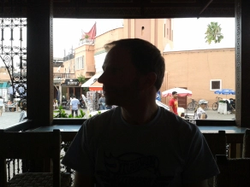 Bio: Nick Black’s stories have been published by literary magazines including (b)OINK zine, the Lonely Crowd, Spelk Fiction, Open Pen, Severine, Funhouse, Firefly, Razur Cuts and Litro, with more coming soon to Jellyfish Review and the Ham . His stories have also won various flash contests and been listed for the 2015 and '16 Bath Flash Fiction Awards, Land Rover/GQ/Salon House Short Story Competition and the Spread the Word Prize. 3/25/2017 The Walk by Quentin MahoneyThe Walk I: Of Bondage Bury this part of me in raw Kulusuk sands, As untouched by Empire as Cold War airstrips Long abandoned. What is this part? A tension within, an Entrenchment, the anxiety of action, the Illusion of inability -- a blockage! -- static between axons I’d like to go to the Greenland shore to see it off. What is it? No muse speaks through me The gods are lost in violent spheres that glow Silent and dim from where we stand. It’s just that Sometimes, my eyes are diverted From the mangled beauty of the world Adjusted to a screen or just The simple fear of death or irrelevance -- whatever that looks like -- So when I’m here, Stewing like this, Taking a nod from old Kant, I walk. I can’t walk to like Lief’s cold mischief, I know, But I can get lost on my way there. II: Of Departure I have left, I have left the house. And as I cross the great iron bridge it comes The trashsyrup smell of low tide along the harbor one of Poseidon’s hungover children Has puked upon the shore. Why does this feeling come when it does? A sickness, a nausea of myself or the world, as the stink of the demiurge hangs low like the tide Is it of me? if it's of me, Is it a problem of chemistry or spirit? The ganglia or the Geist? These streets used to excite me With pockets of mystery coded in every corner But the cipher was a bore And this city’s hidden messages seem muted by, As when packed with dirt-painted snow, A blanket of banality. Or maybe it's of these neighborhoods I've spent too much time in already. Debased of their enchantment, Rotting with reality. But Is this feeling just a component Of the false idolatry nostalgia brings? Cities I've lived in before Calling back from the crawlspace Where memories are tucked away Glowing there like dust in a crack of light For one perfect moment Unmarred by the hideous Now We must be careful of These townships of times past As they feign constituency In Ezra Pound’s ideal Metropolis of the Mind. Yes, these are the apparitions That haunted him From city to city, As he culled every corridor For echoes and stains left by lost gods. This struggle to render From chaos, precision; Stepping on the spread-wide, varied faces of the particular, Higher and higher towards some marvelous castle in the abstract, A Paradiso, his Rapallo, Mussolini’s bully-brought vision. Tragic that the man who liberated English verse from itself Could not free his own spirit In such bondage to the ideal. Look there, his ideal is Beatrice beckoning By the crown of the Leviathan, The humped-back beast jealously guards its golden shores. And it is Ezra ever-sailing for Byzantium, Of winds blown by nervous Cantos. A doldrum is the greatest Feare. Joyce was obsessed with the minutiae Of the deeply flawed Real City And it guided him to the beautiful Ruins of Windy Troy Where he sipped cheap burgundy In noisy bars, But communed with the literature Of the gods. Both men, concerned at the end With reconstituting the worldmyth for A changing global consciousness, To be the Logos for the new Geist. Such wild ambition, such fabulous, formless failures They are. (success bores, flamboyant collapse is an ecstatic thrill) Said Pound of Finnegans Wake: “nothing short of divine vision or a new cure for the clapp can possibly be worth all the circumambient peripherization.” Said Joyce of Pound: “He makes brilliant discoveries and howling blunders... There can be no doubt That Joyce here is supreme, By recognizing the preposterous pretense, The teetering height of Babylon from which His project starts. Joyce colors his gifts with humor, Tempers the crushing gravity of its ambition With ironic distance, the key figure, A Falstaffic demiurge that sloppily recounts The mythic history of civilization. Pound, ever-serious, had none of this, And wrote his own dissonance, With presumption of being His own both Virgil and Beatrice, The Tripartite Poet he believed himself to be. III: On Revere Beach I try to write before the time totally pours out like ink from the bottle and stains my fingers with the blues, the blacks, the grays, dripping from skin, candescent with the fog of the day the Atlantic Beast cradles your neglected dominion the sky that airliners squeeze out of, they materialize, suddenly, as if from nothing, emergent and mysterious, like consciousness thrust violently into being JetBlue, United, American Airlines, ferrying new souls from pure divinity into this strange space scraping the whitewashed surface of the Beast as they descend into existence when I stand nipple-deep in her the Beast Mother, I look up disturbed when they fall from nothingness, so suddenly and so close tearing through the worldskin in cacophony, immanence This is the end of the train line, Wonderland Station Paradise is at the apparent edge of the world where sand cuts into the jetty-acned back of the Beast Up the beach is what we called Hotel Miami because it looked so out of place here with its candypink shell and staggered architecture that make it look like a playset staircase I came here to lick the salt of the dead seagulls’ tears that line the careless wounds of the Beast And to eat the flash-fried parasites pulled from its belly And to watch new souls descend from your pure light towards our shadows on the wall. The air cools, its fog tightens, And the vapour twists into firm, discrete drops. I slink my head down from the incoming rain And wander back towards the station, the sleek, blue train. IV: At The Tam Poems are words culled from The chaotic fugue of mystery, The poet a poor, dirt-chested Achaen Swallowed by Charybdis and spat Back out into the world, perhaps, Onto this very barstool. I hope that doesn’t sound like It’s supposed to be noble. Because it’s not It’s simply the case -- “all that is the case” == “the totality of facts” -- The fact is These are words culled from the shrill cacophony of the bar. The fact is I’ve written published poems from a stool or two here But right now -- I’m writing because I’m waiting Wet, rained-on and waiting And the words just flow onto wet pages. Most great poems are written, At least conceived, In dive bars. A lot of dogshit poems are too, Many that look for short trips to profundity In the romanticism of despair. But There is a sublimity that sings From the sweet stink of a sticky trough, A soft song that falls in phrases, As flakes of dandruff do, Between the thistles of a graying beard. The ones that, Like dust in sunbeams or Sweet snowfalls in streetlamps Catch light for a moment In the low neon bath before landing Faceless on the floor. We catch the moment Hear the brief phrase, the fragment measure, And it is the Great Hope, an indelible perception, A flash, the reflection of you in the world, The divinity Swaddled away in us all. V: Of Arrival the pink porno glow, the industrial sunset cut by sharp clouds, its imported shades of L.A. sleaze painted over freight yards and the coiled concrete arterial. I have often thought how this closing of the day that smolders blue over colorless Sullivan Sq reminds me of the moment when in Paradise Lost, Satan by Michäel’s sword bleeds for the first time. the day seems somehow surprised to fall into night surprised as that angel was by the possibility of wound. Its radical vainglory, a melodramatic casting of light is indeed a Nectarous Humour...such as Celestial Spirits may bleed a last rebel yell before quieting into the cool blue that blankets rattling cars, cars carrying stiff souls from the City’s workday back to suburban homes On the Orange Line we were packed in tight (as always around that time) and at every stop-- too bored to be properly tired-- the distended conductor’s voice rang trebly through every train car: “IF YOU CAN’T FIT ON THE TRAIN, THERE’S A CONVOY OF TRAINS BEHIND US. IF YOU’RE ON THE TRAIN, MAKE SURE YOU’RE ALL THE WAY IN. THERE’S A CONVOY OF TRAINS...” he kept repeating that, so evocative -- a CONVOY of trains -- a convoy, our accompaniment, the vehicles of a struggling Empire packing us in and ferrying us away.. 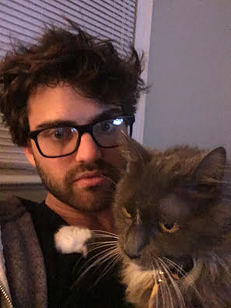 Bio: Quentin Mahoney is a bartender, musician, and writer from Boston, Massachusetts. Previous poetry in Little Star Magazine. |
AuthorWrite something about yourself. No need to be fancy, just an overview. Archives
April 2024
Categories |
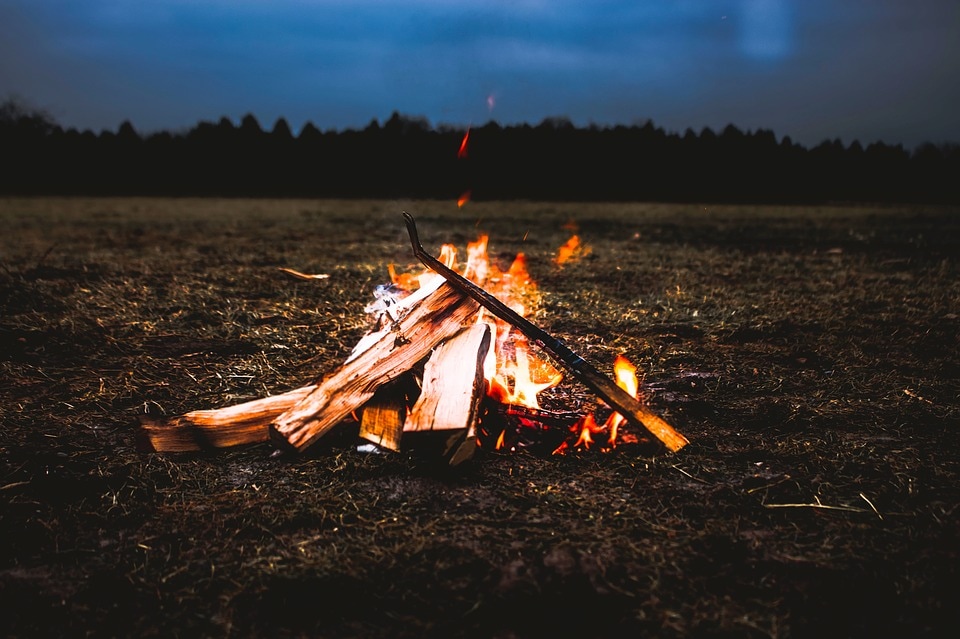
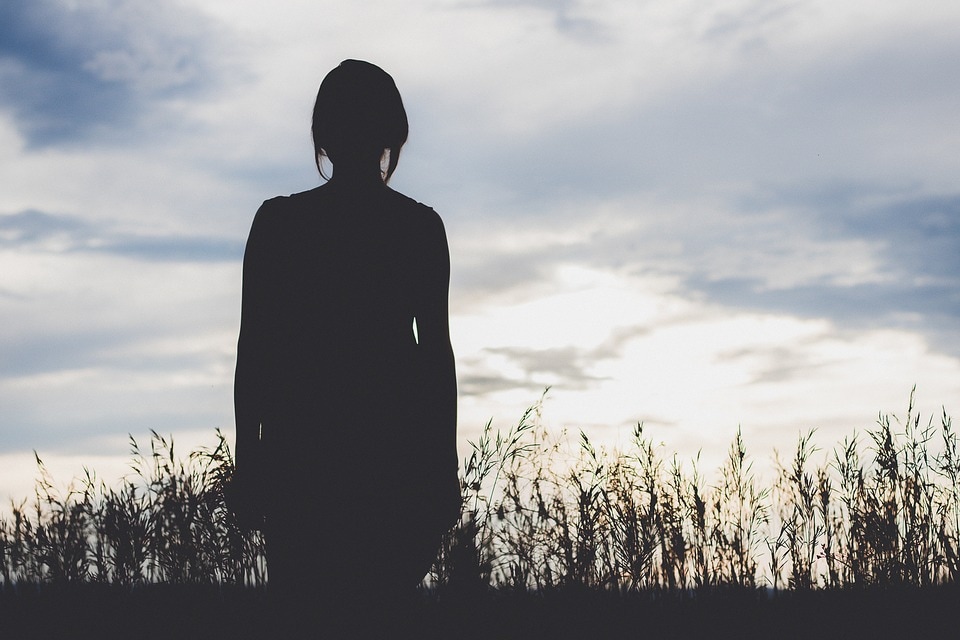
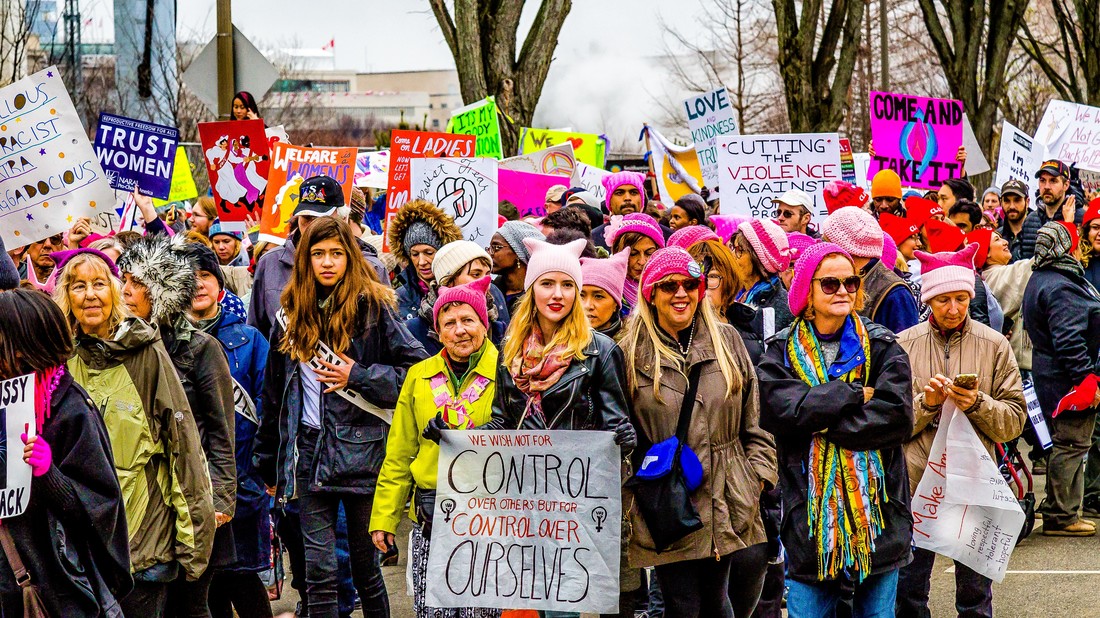
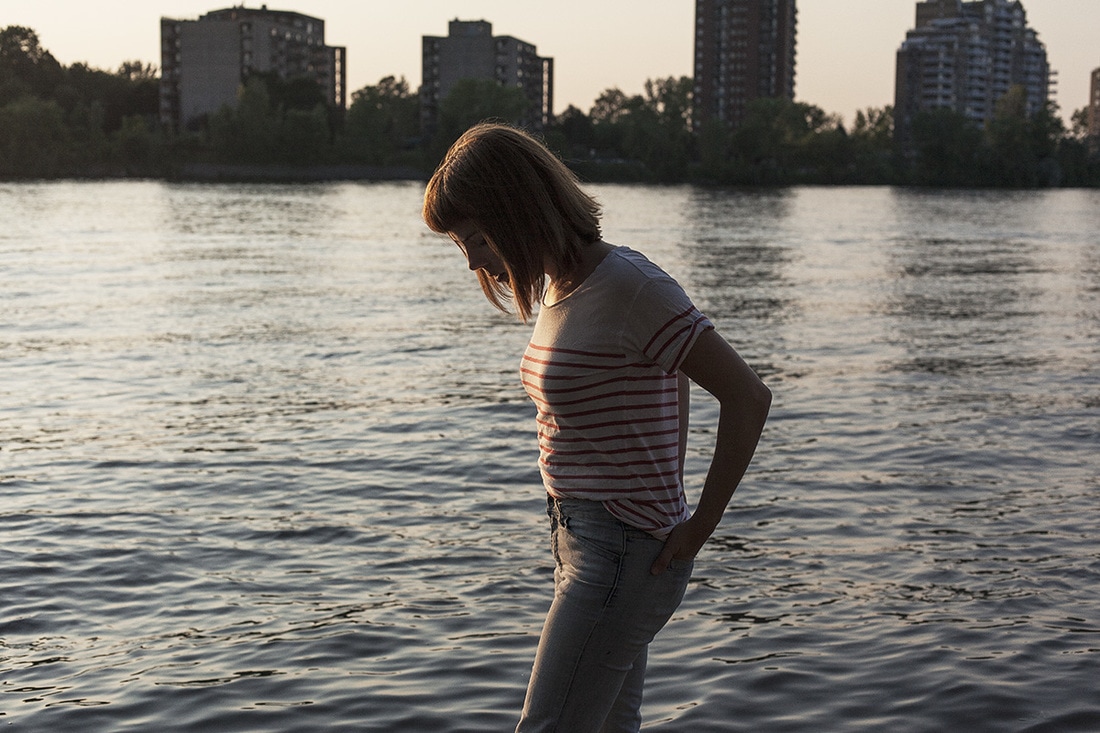
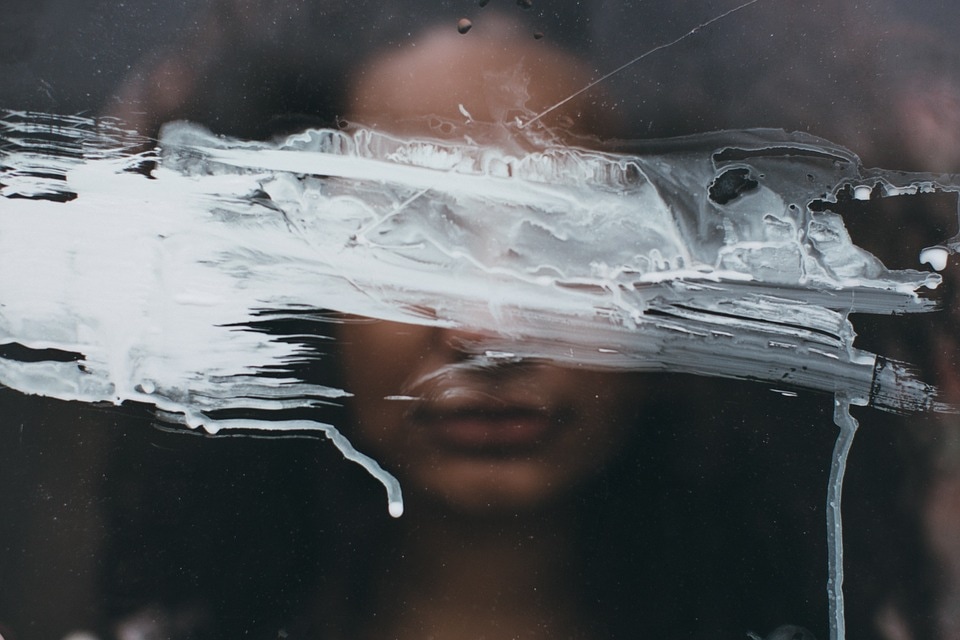
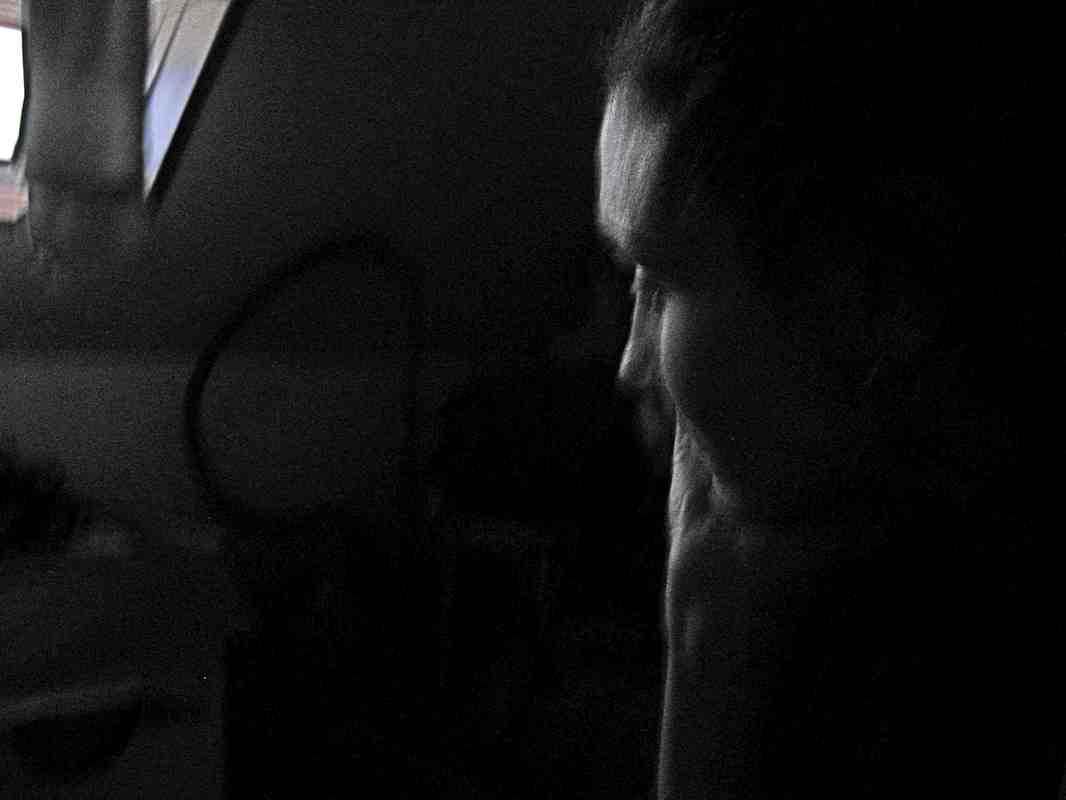
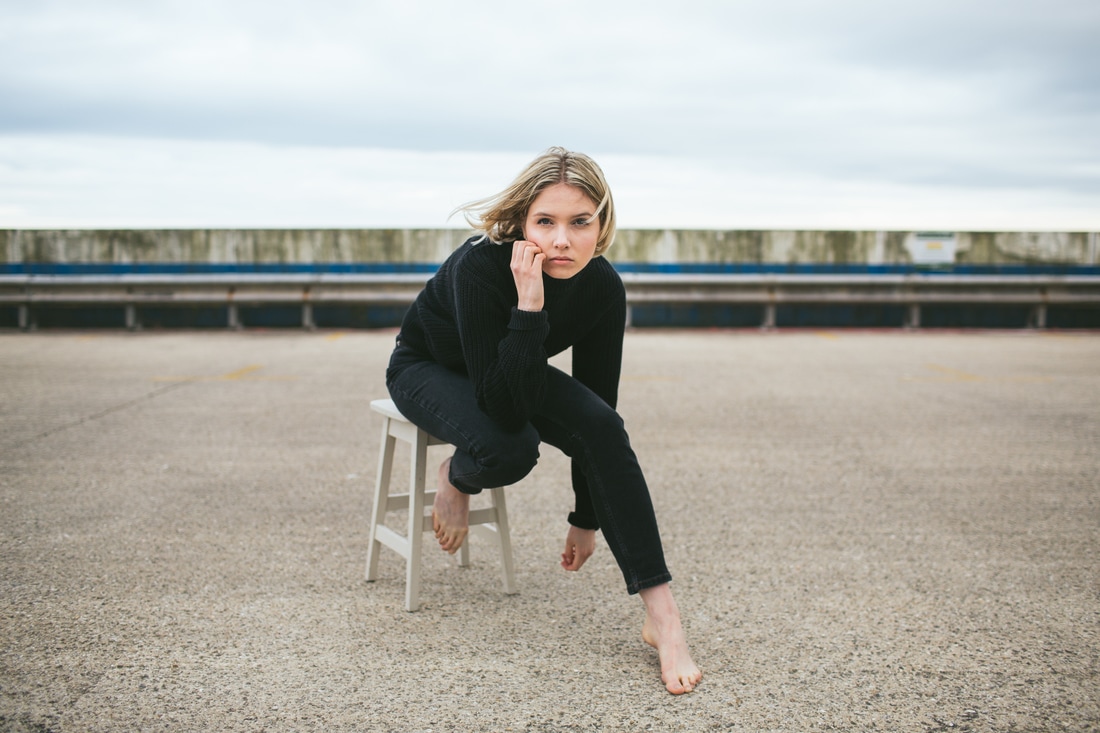
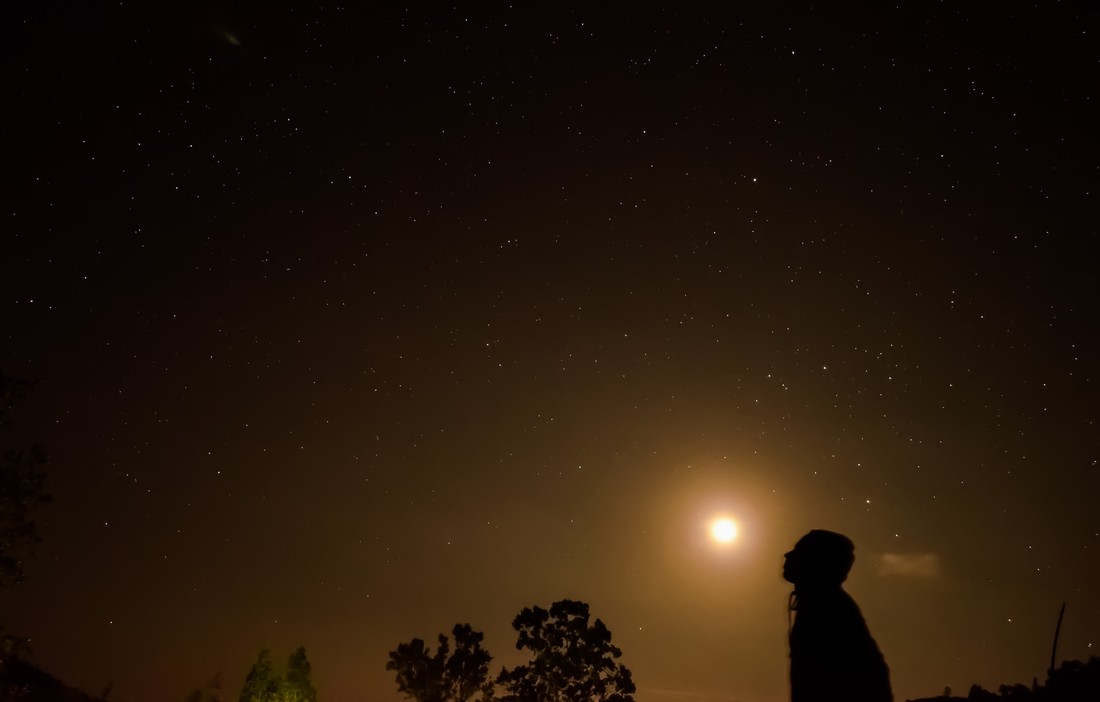

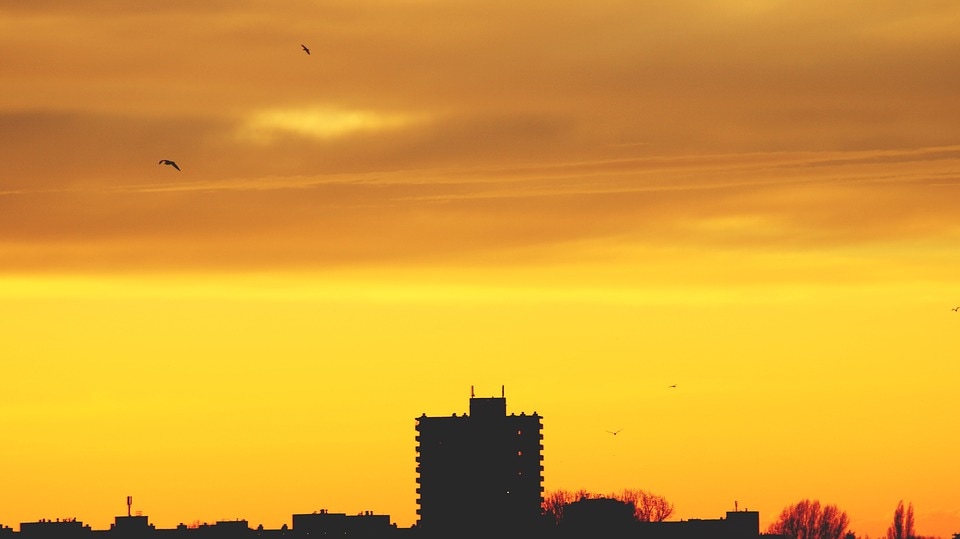
 RSS Feed
RSS Feed
